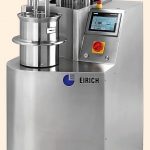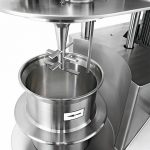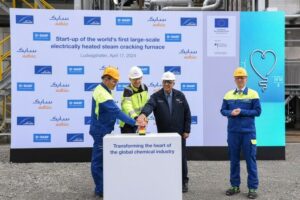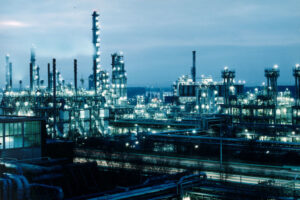The hygienic version of the Eirich mixer now extends the proven benefits of the mixing principle to sectors subject to hygienic requirements, such as the food, pharmaceutical and cosmetics industries. The mixer’s applications are extremely varied and give users an opportunity to overcome the challenge of short product cycles with fast, innovative developments.
Powders, granules or suspensions
Mixer also whirls in hygienic areas
The hygienic version of the Eirich mixer now extends the proven benefits of the mixing principle to sectors subject to hygienic requirements, such as the food, pharmaceutical and cosmetics industries. The mixer’s applications are extremely varied and give users an opportunity to overcome the challenge of short product cycles with fast, innovative developments.
The recent introduction of the new Eirich mixer for hygienic applications allows preprocessing applications to be realised in the food, pharmaceutical and cosmetics sectors. It is based on the relevant requirements of the EC Machinery Directive for the design of machinery used in hygienic applications. As well as being constructed in stainless steel, the machine’s surfaces are very easy to clean: edges and corners have either been eliminated altogether or rounded accordingly. The mixing tool (i. e. the rotor) and the mixing pan are easily removed, enabling the machine to be cleaned throughout in next to no time.
The mixer combines a wide range of basic process steps in a single unit. This flexibility in terms of process control is provided by the variable programming of the tool speed and direction as well as by the rotating mixing pan. All the basic process steps can thus be carried out using one machine with a high level of repeatability. Starting with a dry mix, granules are produced by adding liquid. A further increase in the liquid feed results in a plastic material and – if required – a suspension. There is no need to modify the machine for these various process changes.
Granule properties can be varied
Where granulation tasks are carried out, granules with d50 values ranging from 400 μm to 5 mm, say, can be manufactured using a mixing tool. One good example here would be the manufacture of very porous granules that need to have a certain instant capability. Since the rotor speed can be programmed extremely flexibly, users are able to vary the properties of their granules across a very large spectrum. Soluble sugars can be manufactured in different sizes and densities in this way, for instance.
If microgranules are required, all that is needed is a simple change of the rotor tool. This is so, amongst other things, with very fine powders that frequently have poor flow properties. With microgranulation, such powders are processed very easily to obtain microgranules with excellent flow properties.
Coating without spraying
Coating tasks are similarly easy to carry out in the mixer. Due to the high turbulence levels, a homogeneous distribution is achieved in most cases, even without spraying. The coating and encapsulation process, for example, is used to protect flavourings against light and oxygen or to prevent functional ingredients from reacting with other components in the formula. The machine also performs dry-coating tasks without any problem. Nanoscale powders are applied to carrier particles with extremely homogeneous results.
Dry dispersion of finely dispersed, low-dose ingredients is often achieved by means of premixes, which increase the complexity of the operation. Thanks to the high input of shear energy, the Eirich mixer provides an outstanding solution for dispersing colouring pigments thoroughly and easily. It simultaneously eliminates the need for premixes and saves time which would otherwise be spent cleaning various units. Moreover, the enhanced pigment dispersion and the subsequent reduction in pigment consumption generate considerable cost savings.
Another area of hygienic applications served by this version is intense kneading of highly viscous materials. In the medtech industry, high-plasticity materials are essential for manufacturing prostheses and dentures.
By tailoring the shear energy input to the specific task, maximum homogeneity is achieved while maintaining uniform product quality.
Hall 4A , Booth 409
www.cpp-net.com search: cpp0116eirich
Share:








